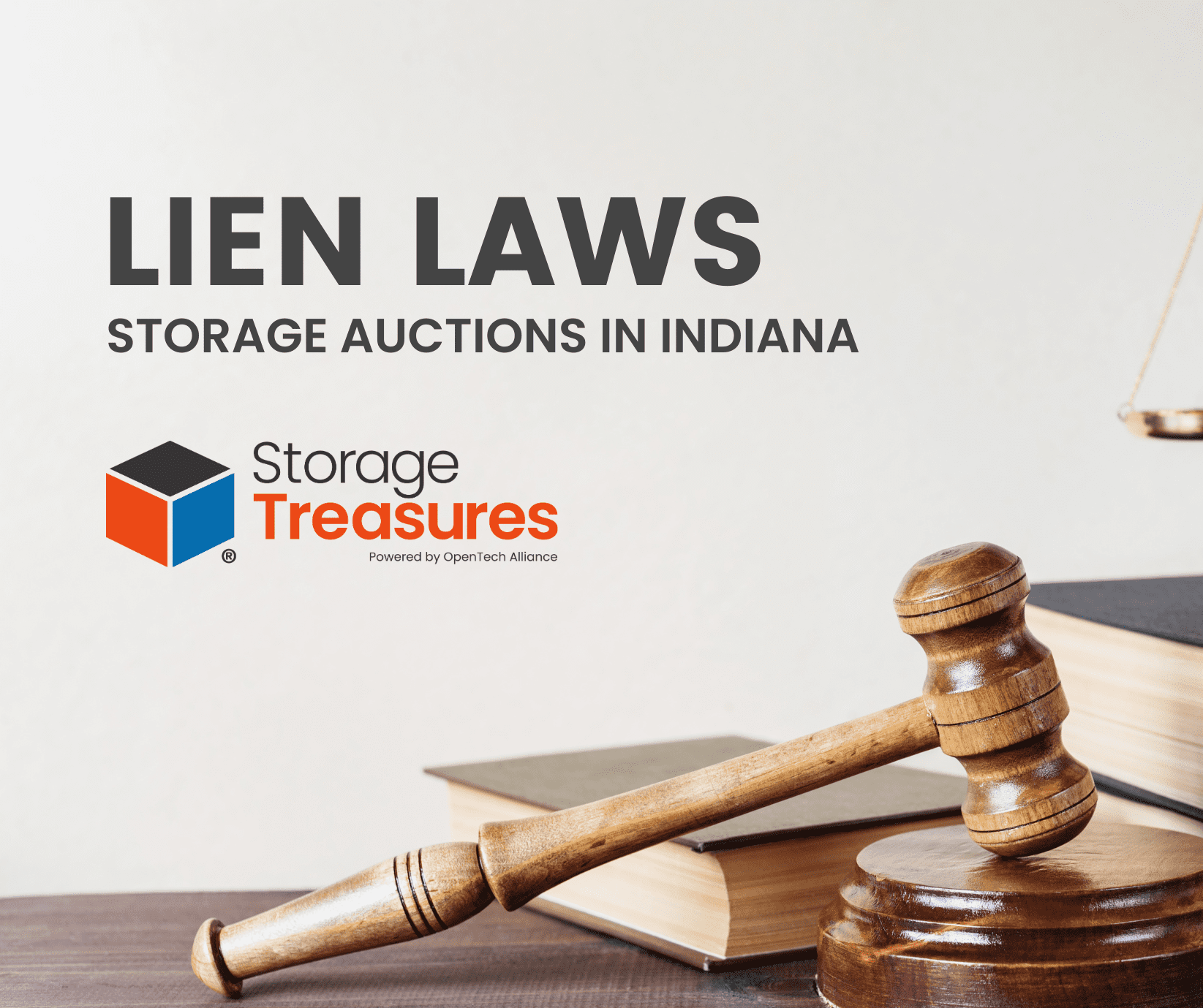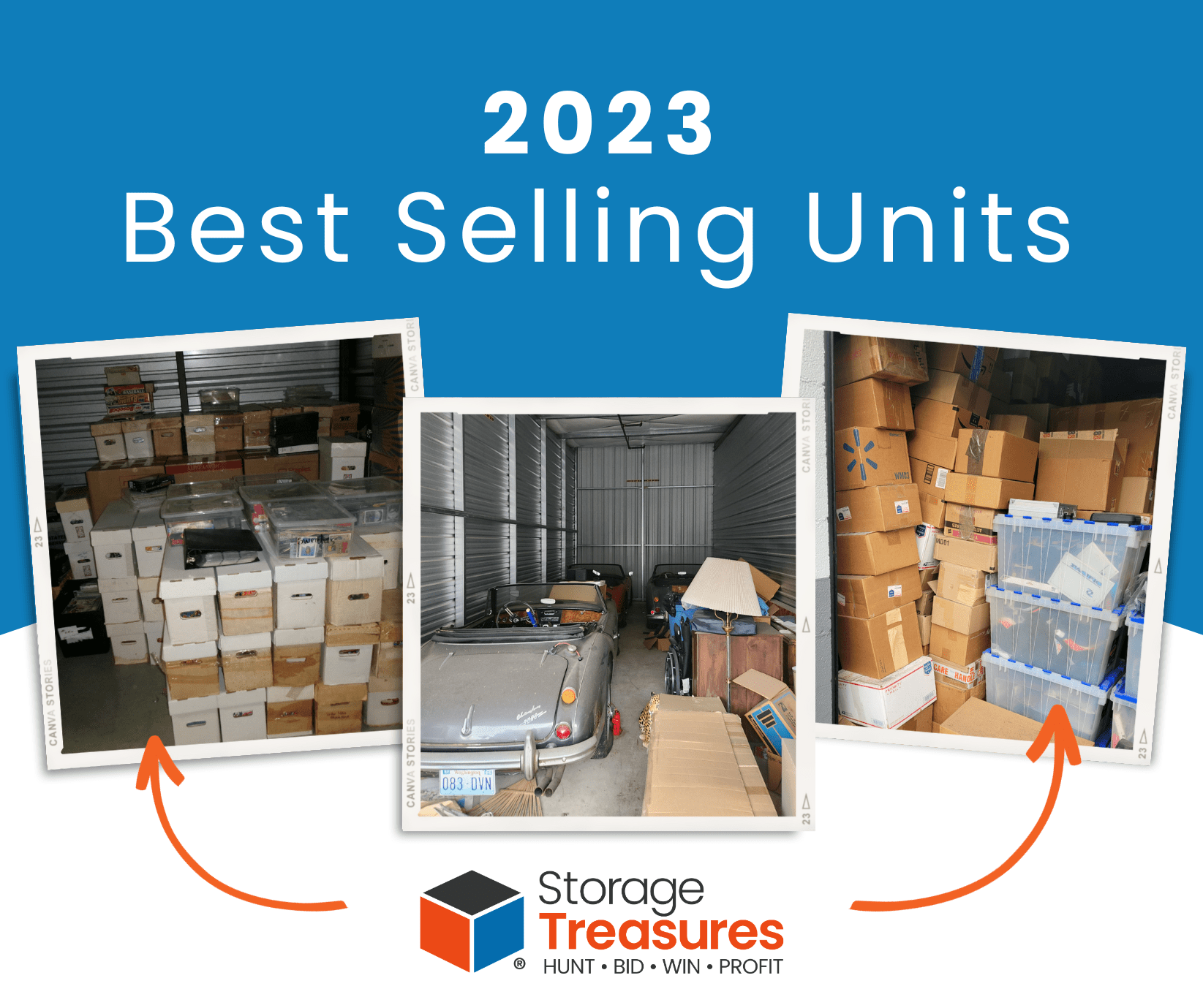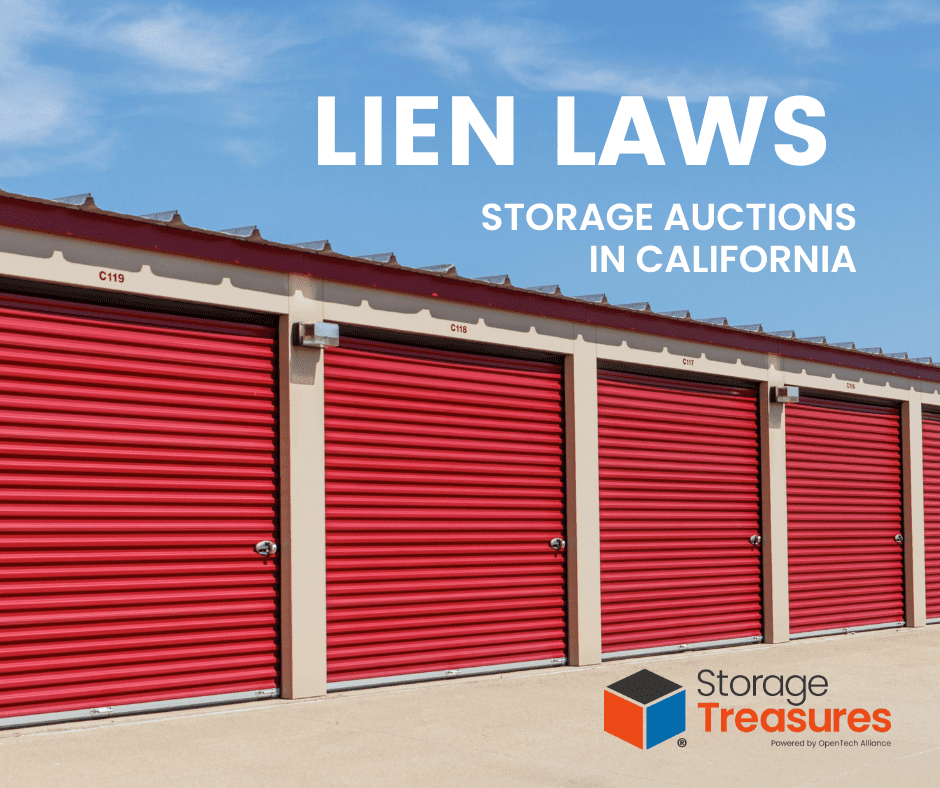Lien Laws for Storage Auctions in Indiana
Lien laws can be confusing, vague and change often. Our experienced staff keeps a close pulse on activity to help you navigate your state lien enforcement requirements. Let’s take a look into Indiana Statutes (§§ 26-3-8-0.5-26-3-8-16), Self-Service Storage Facilities. The Indiana legislature recently passed House Bill 1621 to shorten lien enforcement timelines and allow towing for trailers in addition to motor vehicles and vessels. Governor Eric Holcomb signed HB 1621 into law on April 20, 2023, effective July 1, 2023. Let’s further examine the statute so you can feel confident in the lien laws for storage auctions in Indiana.
Lien Laws for Storage Auctions in Indiana Definitions
As with most self-service facility statutes, Indiana begins with a section of definitions. This section is easy to skim over or ignore, but it is vital to be sure you know everything covered. For example, in Indiana, storage operators can enter a rented space for various reasons. These include inspection, repair, improvement, and in the event of an emergency. What constitutes an emergency? You will find the answer to that question in the definitions section of the statute.
In this instance, an emergency means “any sudden, unexpected occurrence or circumstance at or near a self-service storage facility that requires immediate action to avoid injury to persons or property at or near the self-service storage facility.” This is especially important for facilities in flood-prone areas or Southwest Indiana at-risk for earthquakes. You can’t assume the definitions are not crucial to your storage operations.
Storage Auction Rental Agreement Requirements
You must include any statutory requirements in your rental agreement. However, the first requirement came from the most recent lien laws for storage auctions in Indiana changes under HB 1621. Beginning July 1, 2023, every rental agreement must contain a space for the tenant to designate an alternate contact. The alternate contact will receive any notices sent to the tenant by the storage facility. These notices include Late Notices and Notice of Lien letters.
The alternate contact cannot access the storage space, or the property stored in the space. If a tenant refuses to provide an alternate person to contact, the refusal does not impact an operator’s ability to foreclose. This provision is to help operators locate and communicate with delinquent tenants.
Your rental agreement must also contain a statement in bold type notifying the renter of the existence of the lien and the method by which the owner will enforce the lien under this chapter.
Self Storage Owner’s Lien
Through the self-service storage statute, the facility owner has a lien for all debt owed. Fees include rent and all other applicable fees. This lien allows you to sell your tenant’s property to recover the debt. The claim does not cover any money collected over the amount owed, and you must return excess proceeds to the tenant.
The lien has a date in which it “attaches.” The lien attachment is the date “the lien is in effect in the event of non-payment. In Indiana, the lien attaches on the date on which personal property is placed in the rented space. “
Your lien also has, or lacks superiority, over other liens. Tenants often store items that someone else has a lien against. For example, a restaurant owner might borrow money to pay for their equipment when they start their business. If the company fails, the owner might store the equipment at your storage facility. Unfortunately, the bank that loaned the business owner the money for the equipment might have first rights to the equipment or the proceeds from the property.
Indiana Self Storage Liens Changes
Only a handful of states grant self storage owners a lien superior to all other liens. Indiana self storage liens are superior to all liens filed after the storage lien is attached. They are inferior to any liens filed before the storage lien is attached. Storage liens are also inferior to any tax liens.
How would you know if your tenant is storing property that belongs to someone else? The easiest way to determine this is to provide a section in your rental agreement for tenants to disclose any lien holders on the stored property. You should also conduct a UCC Search with your Secretary of State to determine if any security interests exist in the tenant’s name. Indiana statutes do not explicitly state that you must conduct this search, but the law implies that you should identify lien holders.
Once a renter is in default continuously for at least five days, you can begin enforcement. This timeframe is another recent change from HB 1621. Previously, operators had to wait 30 days to begin enforcement. Once your tenant has failed to pay for five days, you can deny them access to the facility, including their storage space. Before the recent legislative changes, you could only deny them access to the storage space, not the facility.
Notice of Self Storage Lien Letter
You must send a Notice of Lien letter to all tenants whose property you intend to sell. The letter needs to be sent via email or verified mail. You can find a definition of verified mail in the definitions section of the statute. A sale can only occur once a renter defaults for 60 continuous days.
The statute requires your notice to contain the following.
- Itemized statement of the amount owed and when the sums became due
- Demand for payment of the charges due before a specific time, not less than 30 days
- Statement that the stored property is subject to the owner’s lien
- Statement alerting the tenant to access being denied
- Statement that you have moved the property to a different space if you have moved the items
- Name, street address, and phone number of the self storage facility or where the tenant can respond to the notice
- Statement letting your tenant know that if payment is not received by the time demanded, the property will be advertised and sold at a specific time and place
Storage Unit Legal Advertisement
You must run a legal ad in a newspaper of general circulation or any other commercially reasonable manner likely to attract three independent bidders. The legal ad must contain the following. The sale cannot occur sooner than ten days after the legal ad’s first publication or electronic transmission.
- Address of the self storage facility
- Unit number
- Tenant’s name
- Manner of sale
- Time and place of sale
Towing Provision
Before HB 1621, towing provisions only applied to motor vehicles and vessels. With the recent changes, towing extends to trailers as well. If the tenant does not pay the amount due by the time demanded in the Notice of Sale letter, you can elect to have the vehicle, trailer, or vessel towed from the property.
It is important to note that section 26-3-8-14 (e) states if the sale is not consummated, the owner shall notify the renter in writing at the renter’s last known address of the other disposition the owner intends for the property.
If you choose to have a vehicle, vessel, or trailer towed, you must notify the tenant of your actions. Let them know who towed the property and where they can find the property.
Storage Unit Excess Proceeds
If a unit sells for more than is owed, the owner shall hold the balance for delivery, upon demand, to the renter for one year after the sale. After the year expires, the funds are considered unclaimed property under Indiana law.
If a unit sells for more than is owed, you should send your tenant a Notice of Excess Proceeds or a Demand and Release Notice informing them of the balance you are holding for them. You should send this notice by the same method you sent the Notice of Lien letter, email, or verified mail.
Please note, this information in not intended to be legal advice and it is not an exhaustive examination of implementing lien laws for storage auctions in Indiana. Every instance of lien enforcement can be unique and bring challenges. The Indiana Self Storage Association and the National Self Storage Association offer many valuable resources to help you navigate the lien process.
If you have additional questions we encourage you to email our auctioneer team. You can also visit our Help Center and register for any of our monthly webinars.








